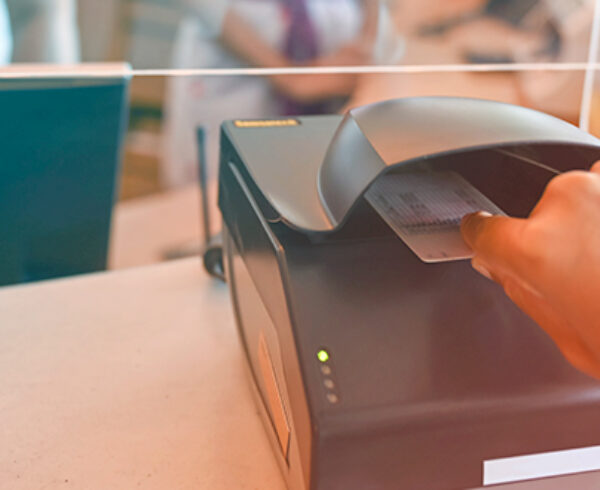Business dinners are crucial for so many industries and so many teams.
During business dinners, startups are formed, talent is wooed, and major decisions are made. However, if you frequently attend business dinners, you may lose sight of just how important they are, or you may find them to be mostly a chore that just comes with your job.
Don’t make this mistake. With these 10 tips, you can approach your business dinners with the seriousness required while also having a good time (yes, really!). The result? More productive, profitable business dinners that you and your team won’t dread.
(And, if you’re just prepping for your very first business dinner, this list will apply to you, too; with the right info, you can go into your first of many business dinners with confidence.)

1. Choose the right restaurant.
If you’re planning the business dinner, choose a restaurant that’s sure to delight all of your guests, but don’t make your guests go out of their way to attend the dinner (whether those guests are on your team or not). No one needs the added bother of extra travel to a restaurant that’s far away.
If you can, take your guests’ dietary needs and preferences into account, too. Your best bet? Don’t choose a restaurant that’s overly specialized or niche; look for menus that offer something for everyone, whether they’re vegan, vegetarian, gluten-free or just trying to choose healthier options.
2. Communicate with the staff.
Don’t show up for a business meeting with high expectations from the restaurant if you haven’t communicated your needs. If you’ll be in a large party, tell the staff and consider booking a private space within the restaurant for more dedicated service and a quieter atmosphere.
3. Be mindful about the menu.
Some business dinners feature a prix fixe menu arranged by the organizer. If you’re the organizer, consider avoiding this, so that your guests enjoy a greater number of options and so that you don’t commit a cultural faux pas, if dining with colleagues or clients from differing backgrounds or cultures, wherein there might be certain dining preferences that differ from your own.
If there is no prix fixe menu, still be mindful about what you order on the menu. Don’t feel as if you need to order the least expensive item, but don’t wildly splurge either.
For your most comfortable dining experience, also choose something that’s easy to eat. Hand-held foods aren’t a great idea at business dinners, and neither are generally messy foods like pasta.
4. Pick your conversation topics appropriately.
Business dinners should be comfortable for everyone, so engage in a little small talk while keeping things workplace appropriate. This means avoiding uncomfortable or contentious topics that you might avoid in any work setting (things like politics or religion).
However, while you should enjoy a little small talk during dinner, don’t lose sight of why you’re at this business event: for business. Ensure that every attendee gets what they want out of this event by more or less sticking to the agenda, whether that’s getting to know a potential employee, exploring a possible partnership or brainstorming a solution for your team’s latest problem.

5. Mind your manners.
While there’s no need to be ultra-formal during most business dinners, you should still follow proper etiquette for the country or region you are in. Keep your elbows off the table. Put your napkin in your lap. Sit up straight. Don’t eat ahead of others; wait until everyone is served before taking that first bite. You might want to read up on local customs and dining etiquette.
6. Know your place settings.
While you won’t find place settings at most meals, if you’re hosting or attending a business dinner, the setting may be a more upscale restaurant that’s not exactly going to give you your utensils wrapped up in a napkin.
If you find yourself in a situation where there are too many forks and not enough answers, remember that, on your left, you’ll usually find two or three forks. The smallest is your salad fork, while the largest is your entrée fork. If there’s another, third fork, it’s typically intended for fish (the same thing goes for a tiny fork you might find on your right). If you get two knives, the smaller one is intended for your salad, while the larger is for your entrée. A dessert fork may be situated at the top of your plate, along with a coffee spoon.
Keep in mind that place settings may differ if you’re traveling outside of the U.S. or Western Europe. You may need to familiarize yourself with other, international place setting traditions, based on where you’re traveling.

7. Watch your wine.
Whether you’re drinking wine or any other alcoholic beverage, business dinners are not the place to get tipsy — or even close to it. Know your limits and stick to them. You may not even want to order any alcoholic beverages if those around you are not. Typically, in this situation, the host will set the example of whether or not you should indulge or abstain.
8. Prep ahead.
Beyond preparing for the business aspect of business dinners, you can prep ahead for an enjoyable experience in other ways, too. If you’re not hosting, research where the dinner will be and know your parking options or how you’ll reach the location via public transportation (so you’re not late!). Look to see if the restaurant has a dress code. Also, consider eating a bite before you arrive — nothing big, but just enough that you’re not scarfing your meal down at the table and your stomach’s not grumbling all the way through the introductory conversations. Likewise, familiarize yourself with local dining etiquette, including the regional rules about tipping and other customs.
9. Show the right courtesy to the wait staff.
People watch how others engage with restaurant staff and often make judgments accordingly. If you’re trying to make a good impression, ensure that you treat the restaurant staff with courtesy and politeness — just as you should any time you dine out. And don’t forget to tip well!
10. Expense your business dinners promptly and appropriately.
If you’re covering the cost of any portion of your business dinner, don’t forget to expense those costs promptly and appropriately, following your company’s exact guidelines.














Leave a Comment